Canadian Immigration Options for Foreign Entrepreneurs
Canada provides opportunities for foreign entrepreneurs to focus on their startups without dealing with complex immigration processes. The Canadian immigration system has fewer requirements and more application options, making it easier for entrepreneurs to concentrate on growing their businesses.
Here are the different Canadian work permit and permanent residence options available for tech entrepreneurs.
Work Permit
Compared to permanent residence, obtaining a work permit is generally faster. This allows entrepreneurs to come to Canada, stay for a longer period, and start building their companies. Let’s explore the various options!
Work Permit for Start-up Visa: This work permit is specifically designed for tech entrepreneurs. It is submitted along with the Start-up Visa (SUV) application, which leads to permanent residence. To qualify, applicants need support from a designated accelerator or investor group, basic language skills (English or French), and enough funds for settlement.
Difficulty Score: 6/10
Intra-company Transferee (ICT) Work Permit: The ICT work permit is for entrepreneurs, senior managers, and engineers being transferred from a foreign company to a Canadian branch office. This option has a high approval rate and a short processing time if the company has paying customers or sufficient funds to invest in a Canadian team. While it requires more documentation, no language test is needed.
Difficulty Score: 8/10
C11 Work Permit: Similar to the ICT, the C11 work permit is only for entrepreneurs and does not require an established foreign company. The Canadian government aims to attract entrepreneurs who are well-equipped to create successful businesses in Canada. Applicants must have a detailed business plan and relevant experience in business management. No language requirements are needed.
Difficulty Score: 9/10
Labour Market Impact Assessment (LMIA) Work Permit: This is the most common Canadian work permit. Most foreign workers require their Canadian employer to obtain a positive LMIA result before they can get a work permit. It involves a two-step process and takes longer. Employers must try to recruit Canadians for the position using various methods for a minimum period.
Difficulty Score: 7/10
Global Talent Stream (GTS) Work Permit: The GTS work permit is a type of LMIA. It was created to streamline the hiring process for foreign engineers and product managers in Canadian companies. This option is particularly suitable for CTOs, software/web developers, and data analysts. While it also follows a two-step process, the government processing time is short.
Apart from these, there are other temporary residence options for tech entrepreneurs and their teams, such as visitor visas for short-term business visits, Francophone Work Permits for fluent French speakers with a Canadian job offer, and Trade-agreement Work Permits for applicants from countries with treaties with Canada (e.g., USA, Mexico, UK).
Permanent Residence
The Start-up Visa (SUV) Program is a permanent residence application designed to attract tech entrepreneurs with innovative business ideas. It allows up to five owners of a company to immigrate to Canada together. The program has basic language requirements but currently has a long processing time.
Difficulty Score: 6/10
The Federal Skilled Worker (FSW) program is the most popular and fastest immigration pathway for skilled professionals. Applicants are assessed based on factors like education, work experience, language proficiency, age, and adaptability. Tech entrepreneurs can obtain permanent residence quickly through this program by achieving a score of at least 470 in the Comprehensive Ranking System (CRS). Note that work experience in Canada is required for the Canadian Experience Class (CEC), which excludes self-employment and doesn’t suit entrepreneurs.
Difficulty Score: 4/10
Provincial Nomination Programs (PNP) – Entrepreneurship is another immigration option for tech founders. These programs, administered by Canadian provincial governments, typically require the submission of a business plan for review. If the plan meets the government’s criteria, entrepreneurs are asked to obtain a work permit to execute their business plan. After a few years, the government reviews the business operation and grants permanent residence to those who have made significant progress or achieved their business goals. PNP – Entrepreneurship programs generally do not have any language requirements.
Difficulty Score: 10/10
Conclusion
Canada offers a wide range of visa options for international start-up founders, making it an attractive destination for tech entrepreneurs aiming to expand their businesses globally. It is essential to carefully consider the requirements, processing time, and other aspects of each option before applying. Seeking professional guidance can save you time and costs during your immigration journey.
Recent Blogs

About Author









